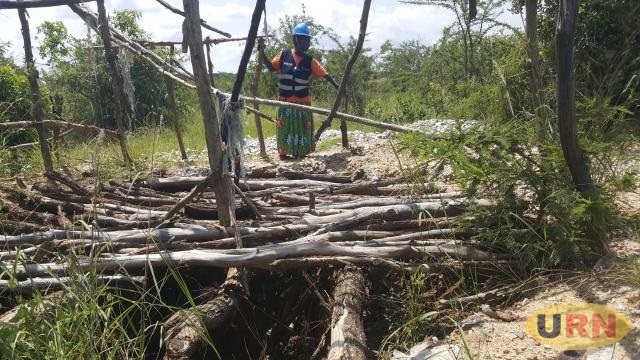
Moroto, Uganda | THE INDEPENDENT | Environmentalists in Moroto District are calling for collective responsibility to preserve the environment from degradation. The rapid depletion of trees and the growing land degradation have raised significant concerns among environmentalists, who are now calling for immediate action to address the issue.
Industrialization, urbanization, and human activities, especially in mining areas, have contributed to severe environmental degradation. Trees have been cut down for charcoal burning, heating stones for weakening before breaking, and for excavating minerals.
Zakary Angella, the Moroto District Environmental Officer, stressed the need for collective efforts to promote environmental conservation. Angella explained that the loss of biodiversity is a critical component of the environmental crisis, with human activities posing a significant threat to sustainability.
He noted that the district has passed a policy requiring every government institution to construct a facility to incorporate tree-planting projects. Angella added that every investor should apply measures to mitigate the negative impacts their projects may have on the environment.
He further stated that environmental degradation is becoming more severe as both investors and local communities continue to destroy the environment. Angella pointed out that mining companies have been excavating large areas for mining facilities, with massive deforestation taking place without any efforts to replace the trees.
He also mentioned that investors are not implementing measures designed to protect the environment during exploration. Some investors, according to Angella, are heavily guarded by security, preventing district officials from entering mining sites for monitoring. He also observed that seedlings distributed to the community for planting have dried up due to the scorching sun.
Gerald Eneku, the Inspector of Mines in Karamoja, said that artisanal miners are contributing more to environmental destruction. They cut down trees to burn rocks in order to weaken them before breaking, and they also use trees to produce charcoal, which is sold to truck drivers transporting marble out of Karamoja.
Eneku explained that although other investors also contributed to environmental degradation, a new law has been drafted to regulate exploration and environmental conservation.
He revealed that the old law lacked a component for environmental conservation, but now, environmental protection is prioritized. The new law requires investors to deposit money into a government account before receiving mining licenses, with part of the money being allocated for environmental restoration.
Eneku reiterated that this would help address the environmental destruction in mining areas permanently.
Lucy Lomuria, an environmental activist in Kosiroi Village, Tapac Sub-county, expressed concern about the pits left open after mineral excavation. She said that gold and marble miners had abandoned their excavation sites, leaving dangerous, open pits.
Lomuria explained that these pits pose a serious risk to the local community, as livestock and children often fall into them, sometimes resulting in fatalities if not rescued quickly.
She called on district officials to intervene, stating that the situation is worsening, and community members are being threatened to remain silent.
In contrast, artisanal miners in Moruita Sub-county, Nakapiripirit District, have taken the initiative to cover and protect open pits.
Hellen Adongo, an artisanal miner at the Utut mining site, said they decided to cover the pits after several accidents, some of which led to fatalities.
Adongo explained that the gold mining pits were left open by previous miners, exposing the community, especially young children, to danger. The current miners have taken charge, sealed off the pits, and placed warning messages about the potential risks.
She added that they have also introduced policies to restrict children from accessing mining sites and protect the environment.
Andrew Byaruhanga, the Executive Director of Resource Right Africa, called for government intervention to address the environmental crisis, especially in mining areas.
Byaruhanga highlighted that mining companies in Tapac Sub-county have degraded over 300 acres of land without any restoration. This environmental degradation has affected crop production, leading to food insecurity. As a result, families are forced to send children to work in the mining sites to survive.
He noted that due to land degradation and unreliable weather conditions, many children are forced to drop out of school, and girls are married off at a young age.
In May 2023, President Yoweri Kaguta Museveni issued Executive Order Number 03, banning charcoal burning and trade in Northern Uganda as part of the measures to protect the environment.
******
URN
 The Independent Uganda: You get the Truth we Pay the Price
The Independent Uganda: You get the Truth we Pay the Price


